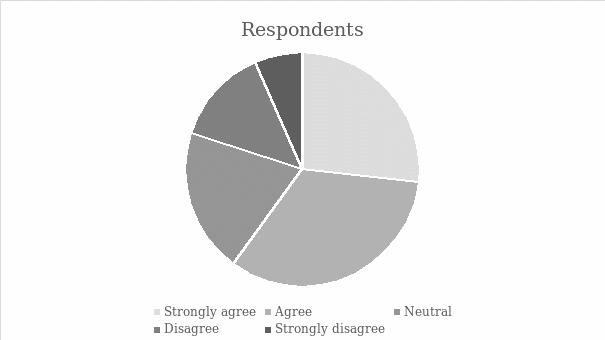Introduction
According to Mike Pence (n.d.), “adult stem cell research has produced some 67 medical miracles” over the last couple of years. The method is derived from the usage of cells retrieved from embryos that are in the capacity of forming one of the different types of tissues in the human organism. Later, these not fully differentiated cells are utilized to replicate cells in the body to solve a number of medical diseases. At the frontier of scientific advancements, however, a critical ethical dilemma for humanity arises. On the one hand, the usage of embryos for further science may be considered ethical for the sake of a scientific experiment.
On the other hand, the protection of embryos is in an acute need in society. This assignment comprehensively critics the opposers of stem cell research, arguing for their inability to take advantage of the methods’ potential discoveries.
Main body
A randomly stratified sample of fifteen fellow students was chosen to explore the generalized attitudes of the youth regarding stem cell research. Respondents were faced with a question: “Religious and social activists who lobby against stem cell research should not be enticed to use its potential medical breakthroughs.” As shown in graph 1 in Appendix 1, the results of the questionnaire were as follows: five students strongly agreed with the statement, 4 agreed, 3 remained neutral, 2 disagreed, and 1 disagreed strongly. Surprisingly, subjects who chose to be on the radical extremes of the spectrum were in their freshman or sophomore year of college, while those individuals who held neutral beliefs were seniors. In terms of demographics, no significant correlation was found between the respondents’ race, ethnicity, gender, and their attitudes toward the question.
This paper will examine the majority’s position on the subject matter by taking a stand against religious and social activists who criticize stem cell research. As explained by Fung, Yun, Atkins, Shi, and Bubela (2017), stem cell research has the potential of providing treatment for chronic and terminal diseases. Matthews and Iltis (2015) emphasized that the method is revolutionary and can prolong the lives of human beings. The eradication of illnesses and promotion of possible future cures should be a priority for all individuals despite religious affiliation.
While stem cell research uses undeveloped embryos in scientific studies, at its core, it aims to improve the quality of human being’s life which weakens the argument regarding the lack of morality of the method. As stated by Musial-Wysocka, Kot, and Majka (2019), members of the religious community have a fixed moral belief that the embryo is equivalent to a human being, regardless of age. Therefore, destroying the embryo in the process of scientific research is equivalent to killing the child.
However, in this foregone conclusion, an important notion is excluded. By using one embryo, scientists may develop a course of treatment for millions of people. According to Allum et al. (2017), stem cell research already showed promising results in curing diabetes, spinal cord injuries, and Parkinson’s disease. By lobbying against the method, activists prevent patients from getting innovative treatment that could change the quality of their life, prolong the lifespan, or even determine their life choices.
The question of sacrifice is central to the debate among scientists and religious members. Ratajczak, Ratajczak, and Kucia (2019) compared the process of stem cell research to the vaccination. Without testing multiple vaccines on the subjects and sacrificing someone’s life, it is nearly impossible to reach a life-term goal of developing medication against chronic and terminal diseases. Putting aside religious convictions for further scientific research is vital for discovering the treatment for debilitating sicknesses.
Without gathering substantial funding for stem cell research, scientists would not be capable of conducting experiments. Since the governmental support for the issue is also affected by the moral controversy of a definition of an embryo, the actions of opposers of the method have a critical impact on the future of the approach (Allum et al., 2017). To validate the study, social activists should crowdsource their efforts for the sake of saving other people’s lives.
On the contrary, those who consciously choose to advocate for the termination of the scientific studies should not be held liable for using the experiments’ later discoveries for their benefit (Musial-Wysocka et al., 2019). Active social support of stem cell research is critical to obtain the privilege of utilizing its further accomplishments for the research is time-consuming and requires high financial expenditures.
Conclusion
Ultimately, stem cell research is a novel method that involves the usage of embryos for scientific experiments. The premise of the approach caused heated discussions both among common people and on the governmental level. This paper argues that the right to use discoveries made during the stem cell study should not be granted to its active opponents. The main reasons include the high expenditures and substantial government funding needed for the experiments. When lobbying against the method, activists consciously choose to reduce the financial support for the matter, disregarding the overall good cause of overcoming debilitative diseases.
References
Allum, N., Allansdottir, A., Gaskell, G., Hampel, J., Jackson, J., & Moldovan, A. (2017). Religion and the public ethics of stem-cell research: Attitudes in Europe, Canada and the United States. PLoS ONE, 12(4), 1-14. Web.
Fung, M., Yun, Y., Atkins, H., Shi, Q., & Bubela, T. (2017). Responsible translation of stem cell research: An assessment of clinical trial registration and publications. Stem Cell Reports, 8, 1190-1201. Web.
Matthews, K. R., & Iltis, A. S. (2015). Unproven stem cell-based interventions and achieving a compromise policy among the multiple stakeholders. BMC Medical Ethics, 16(1), 1-11. Web.
Pence, M. (n.d.). Biography/personal quotes. Web.
Musial-Wysocka, A., Kot, M., & Majka, M. (2019). The pros and cons of mesenchymal stem cell-based therapies. Cell Transplantation, 28(7), 801-812. Web.
Ratajczak, M. Z., Ratajczak, J., & Kucia, M. (2019). Very small embryonic-like stem cells. Circulation Research, 124(2), 208-210. Web.
Appendix 1
